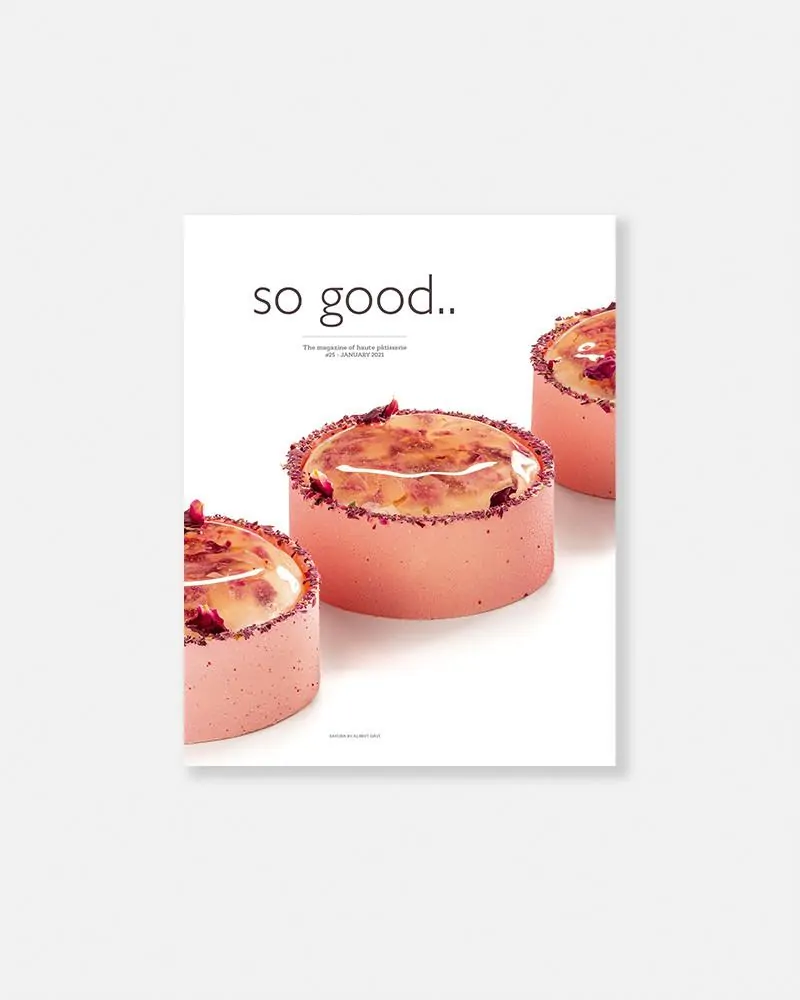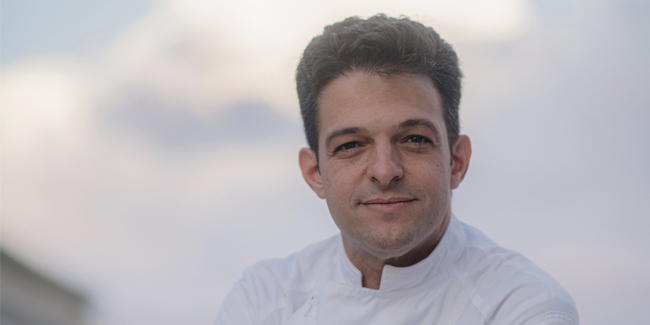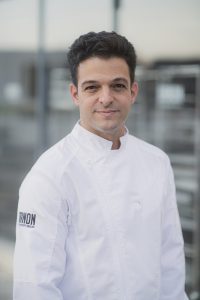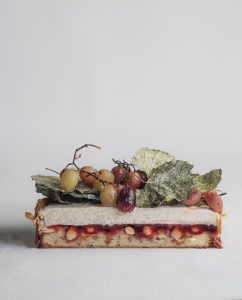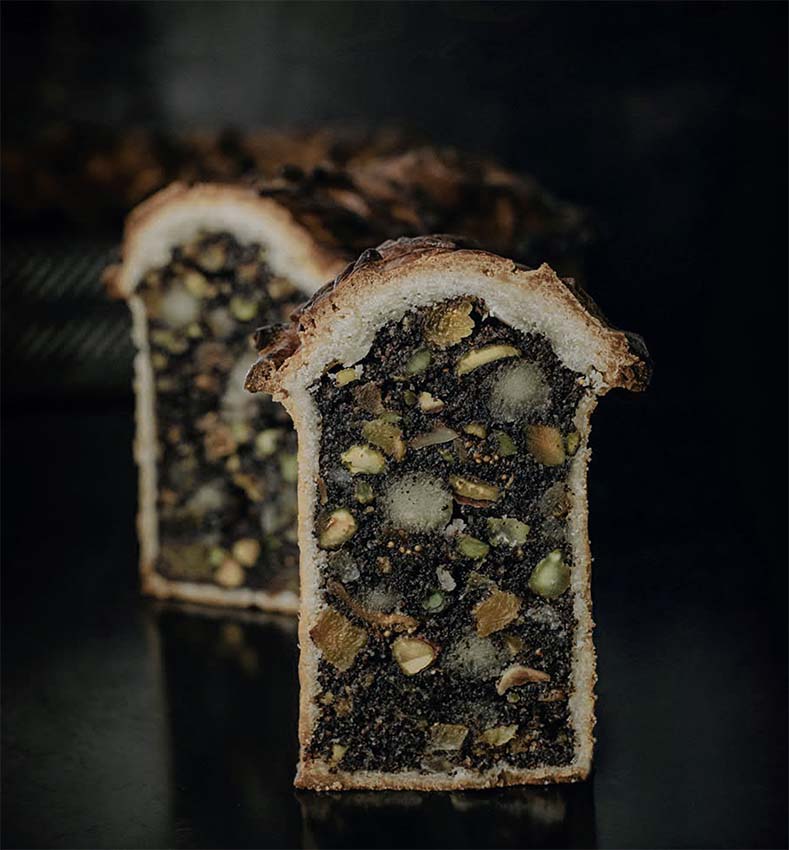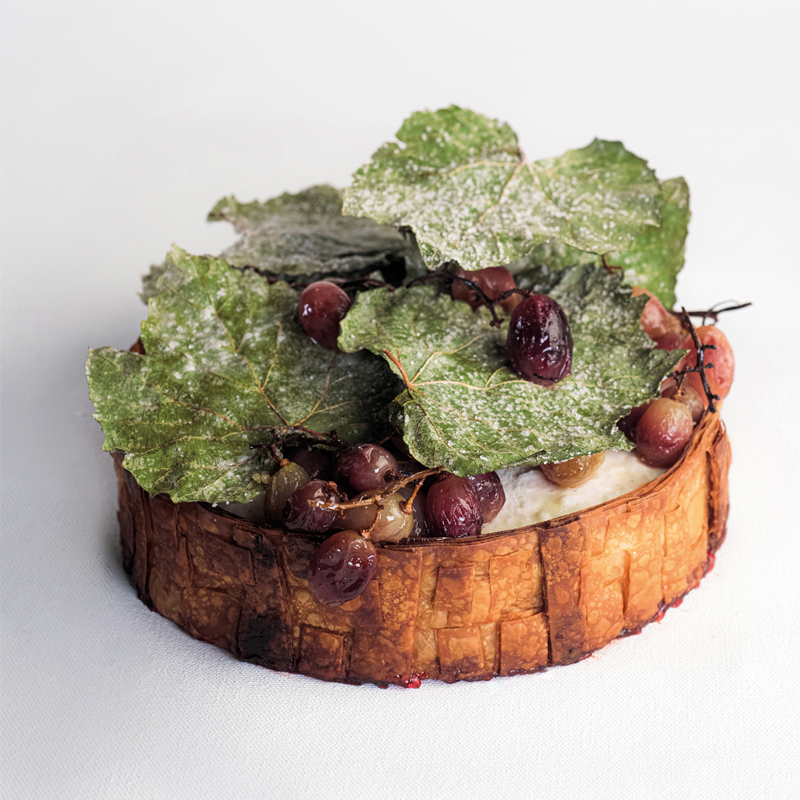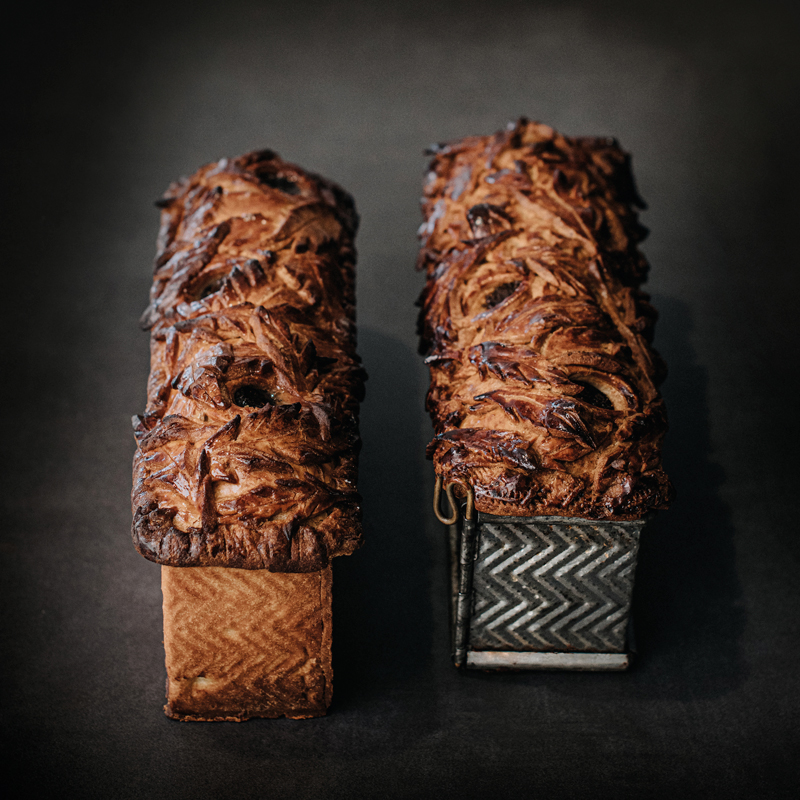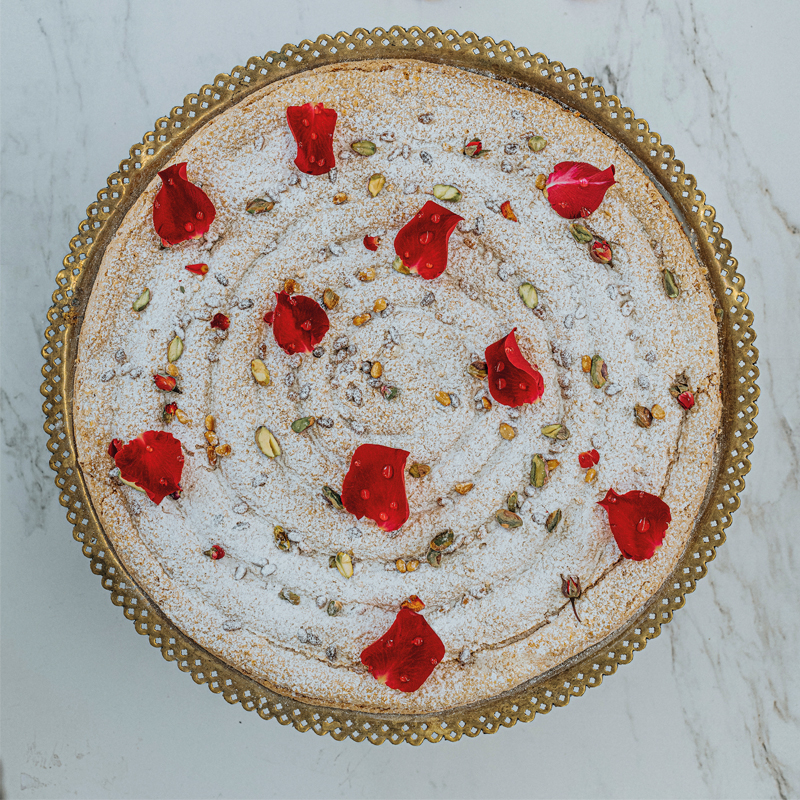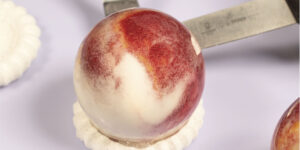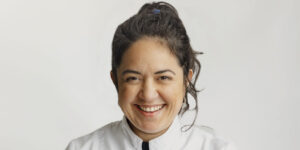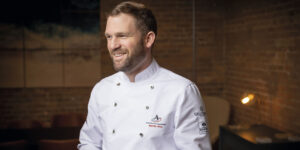Categories Pastry Chef Articles
Lior Shtaygman:’Cakes need to look as if they were grown or created in nature’
We like his way of understanding pastry, his teaching vocation, his technical skills and his good aesthetic taste. But what we like most about Lior Shtaygman, teacher and manager of the Baking department in ‘Danon – Culinary Institute’, located in the port of Tel-Aviv, in the center of Israel, is that unique and genuine style of his, highly inspired by Nature.
And this is what we could enjoy again in so good #25. The chef himself perfectly defines his idea for us, ‘cakes need to look as if they were grown or created in nature, as if they had developed in an evolutionary way like trees, forests, plants, and in geological forms like valleys and mountains.’ We chatted with Shtaygman about this and other issues and he presented us exclusively in the printed version of the magazine with three incomparable creations, just like three fresh, lively and unrepeatable landscapes.
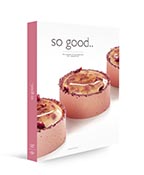
Welcome back to the pages of so good..magazine. What is your current project in Danon?
Our flagship project for the last two years has been the Baking Simulator hand- led by the department of baking, in which the students of the school take part in a coffee shop that operates in our Schoolyard, once a week. Every Friday at 8am, the doors of the coffee shop are opened, and a long queue of people forms outside for six hours. Our joy is double fold; first to see our coffee place active and second to see this option handed to our students, and their part in this project. The simulator answers our needs to offer the students the proper training needed for the professional and business world outside of school. This is a project we have been working on for a long while and have invested a lot into. In our industry, our work is never over, and our search and willingness to improve is always vast – that is all the fun.
‘ I am always trying to exceed my creative limitations to places I haven’t seen before, to set my imagination free, and expect that the cake will look like a living object. Therefore, I won’t use shapes, but try to create them by myself ’
Your pastry style is more from the oven than from the freezer and more from big tarts than small ones. Where are your limits when you create something?
In the past, baking products consisted mostly of big and simple goods that were relatively simple to prepare; I very much love to create in these areas – it takes me at least 300 years back.
In the coffee shop, one of my main objectives in creating a product is for it to be tasty, look different, tempting, and easy to manage in a system where ‘Danon’ is a school and not a regular manufacturing place. We have created a large line of products that are original and cut in front of the clients. Mega tarts in 60×40 baking dishes, unique pastries like the Greek galaktoboureko and Muhallebi, also, a variety of large and different tarts and pies alongside traditional and classic pastry.
As a teacher and manager of the Baking faculty, I need to have expertise in many aspects of baking, but my aspiration is for simplicity, and an effortless image, together with an appealing visual of the product. In my opinion, cakes need to look as if they were grown or created in nature, as if they had developed in an evolutionary way like trees, forests, plants, and in geological forms like valleys and mountains.
I am always trying to exceed my creative limitations to places I haven’t seen before, to set my imagination free, and expect that the cake will look like a living object. Therefore, I won’t use shapes, but try to create them by myself – that always makes it look more logical and natural in my opinion.
Do you still think that pastry should be a reflection of the ingredients and the culture of a geographic area? Could that be a limit to create?
I think that food needs to be connected to culture and to the produce of a certain area. The mixture of flavors that work are mostly known in every culture and area, and the chances of recreating a combination of flavors that are new is very low. I believe that bakers, like chefs, must discover the combination of flavors that are popular in every culture and try to find the right balance and dosage – the one that fits the palette of the place they create in.
In the global village that we live in, information is very accessible, and I see no prevention in learning new produce and different cultures, even those that are far. What was once impossible, and made possible only by living in another place, has turned into something very accessible today. For example, when I prepare Italian amaretti, or the Greek galaktoboureko, desserts that aren’t from my region, I try to think of the flavors of that area, how they used to prepare them in ancient times. It isn’t an empirical research, and I don’t want it to be one – the chances that I am not loyal to the origin is bigger than the opposite, but if its tasty, looks good and is appealing, the origin is not important from my point of view.
‘ Many schools are trying to develop the online sector in order to survive financially and that is understandable, but to be honest it doesn’t hold a place in my opinion. ’
What do your students think about the future? Where do they want to work when they finish their training?
The full training program in Danon is a yearlong program that is cut into four different parts. The first two sections of the program focus on learning about the basics of baking and is learnt in depth during 46 meetings. Later on, our students start a training program that gives the expertise and the knowledge to know techniques, flavor combinations and modern decorations and designs. In the last section, they continue towards a ‘wrapped’ program to learn recipe development and engineering, niche baking, and substitutes to sugar, gluten and milk, marketing, management and opening of small businesses. The graduates of Danon usually continue to work in Israel’s leading baking shops and restaurants.
In addition, a field we have developed in the last years is an internship in France. Danon is in touch with the leading places in Paris: Christophe Michalak, Yann Couvreur, Jeffrey Cagnes from Stohrer and Nicolas Bacheyre from Un Dimanche à Paris…, and at the end of the curriculum the students travel to Paris and work in the leading places for a few months long. So far, we have sent hundreds of students for internships in Paris, and they acquire a major advantage doing them.
‘I think the online world is ongoing and developing rapidly but isn’t as efficient as in-person studies. We work in a field where tasting is an important factor, and it is nearly impossible to learn this industry without the possibility of tasting.’
What do you think about the online courses in pastry and chocola- te? How do you think the current crisis will affect the pastry and chocolate sector?
I think the online world is ongoing and developing rapidly but isn’t as efficient as in-person studies. We work in a field where tasting is an important factor, and it is nearly impossible to learn this industry without the possibility of tasting under the scrutiny of a good chef and teacher. An identical recipe can taste differently when made by each student, despite them all having used the same ingredients. That, until today, can only be transmitted and taught in person and not online.
Cooking and baking require hours of practice in order, and it is recommended that the first kilometers of this marathon are guided by an experienced guide that will know how to direct the path and count the steps. I think that the online world is always improving, but it’s more of a solution to people that have a background in this field, and not for starting students.
Many schools are trying to develop the online sector in order to survive financially and that is understandable, but to be honest it doesn’t hold a place in my opinion.
I really hope we will go back to normality soon, so we continue teaching in the way we most believe in – chefs and students in one class together.
